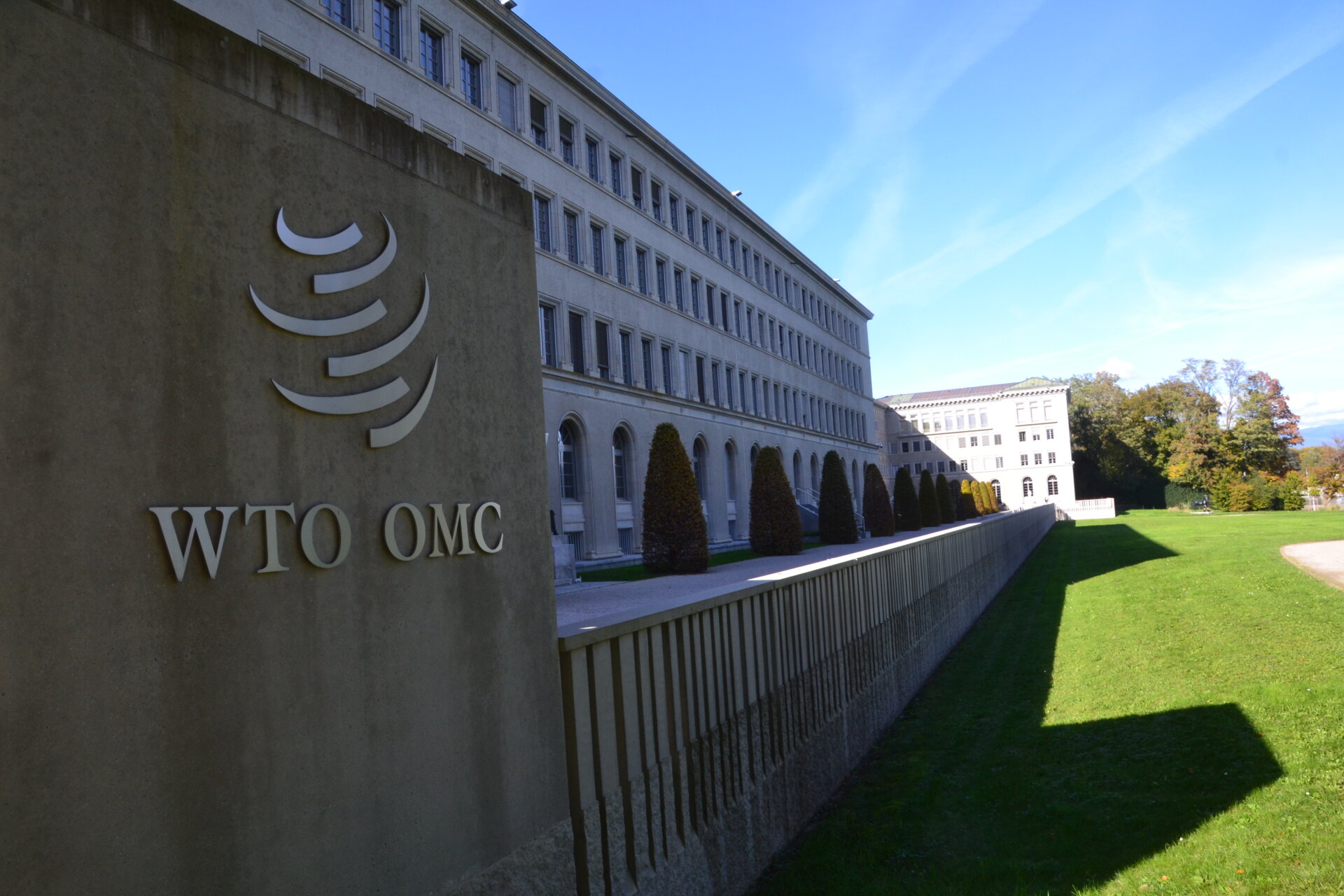The World Trade Organization’s (WTO) 13th Ministerial Conference (MC13) will take place from February 26 to 29, 2024 in Abu Dhabi. Amidst a challenging negotiation process strongly influenced by geopolitics and without a well-defined agenda, limited outcomes are anticipated. Recognising this, it is critical to leverage opportunities with the greatest potential for advancing an ambitious green trade agenda at the WTO.
In the context of escalating geopolitical volatility, the intersections of trade and climate are gaining prominence on the world stage. The 12th Ministerial Conference (MC12) in 2022 resulted in the mention of climate change in the outcome statement next to a historic new Agreement on Fisheries Subsidies, as well as various plurilateral climate initiatives. In December 2023, COP28 included the first-ever trade day amid tensions over unilateral measures.
The upcoming ministerial of WTO members will be dominated by controversial negotiations including the extension of the e-commerce moratorium, another the fisheries agreement, and food security. Countries like India and South Africa are strongly positioning themselves on many of these issues. To complicate matters further, the WTO is navigating a complex reform process, including its dispute settlement system – a crucial enforcement mechanism facing crisis since 2019.
In this context, identifying opportunities with the highest potential for maintaining progress on a forward-looking green trade agenda at the WTO is paramount:
1. Plurilateral agreements with promise
Negotiations at the WTO are notoriously challenging, requiring consensus among its 164 members. Consequently, formal agreements often remain elusive in favour of plurilateral initiatives. For example, the Trade and Environmental Sustainability Structured Discussions (TESSD), a plurilateral forum of 76 WTO members, will be launching a package of outcomes reflecting progress since MC12 and further actions for trade policy to support environmental sustainability. Additionally, the co-sponsors of the Plastics Pollution Dialogue have reached an agreement on a ministerial statement to address global plastic pollution. Next to WTO negotiations, the ministerial will be an opportunity for the Coalition of Trade Ministers on Climate to meet and set fresh objectives.
2. An overarching green trade mandate
Each of these plurilateral workstreams is making progress toward promoting green trade flows, but an overarching mandate on green trade is still lacking. Some Members, like India, oppose such a mandate arguing that non-trade issues should not be discussed at the WTO. However, as highlighted by the Remaking Trade Project, the foundation for a sustainability mandate already exists within the preamble of the Marrakesh Agreement establishing the WTO. It provides that trade should be conducted “in accordance with the objective of sustainable development, seeking to both protect and preserve the environment.” A Ministerial Declaration re-emphasising this preamble could provide a basis for reframing narratives around green trade. Members have also expressed a desire to revitalise the Committee on Trade and Environment (CTE) as the main forum for dialogue on trade and environment.
3. Breaking silos on trade and climate
As the trade and climate nexus gains traction in various international forums, these conversations must evolve to a more inclusive and collaborative approach involving diverse stakeholders and experts.
Membership of the WTO’s fora is restricted to states, with organisations such as the UNFCCC limited to observer status. Establishing broader cross-institutional dialogues with international climate bodies such as the UNFCCC is critical to breaking silos and improving the alignment of climate and trade narratives. Similarly, promoting exchanges and joint working programs between the Trade Ministers Coalition on Climate and the Finance Ministers Coalition on Climate would allow progress on a common trade, climate, and finance agenda.
4. Reforming subsidies rules
A global consensus is emerging on the need to reform subsidy rules. At MC12, Members adopted the Agreement on Fisheries Subsidies, a historic step toward prohibiting harmful fisheries subsidies and promoting ocean sustainability. However, the agreement left many gaps, particularly in terms of addressing overcapacity and banning overfishing. Members have struggled to make progress on another agreement in time for MC13.
In parallel, participants of the plurilateral Fossil Fuel Subsidy Reform (FFSR) set out a high-level work program in a Joint Ministerial Statement. At their last convening on November 24, 2023, participants were preparing follow-up actions focused on enhancing transparency, crisis support measures and addressing the most harmful fossil fuel subsidies.
Finally, considering the increasing reliance on industrial subsidies to tackle climate change, the need for a new governance system for green subsidies is clear. Members are far from agreement on what this system should look like but, as highlighted by the EU during their recent Civil Society Dialogue, the creation of a work program on green subsidies could be the first step toward identifying a prospective work plan.


